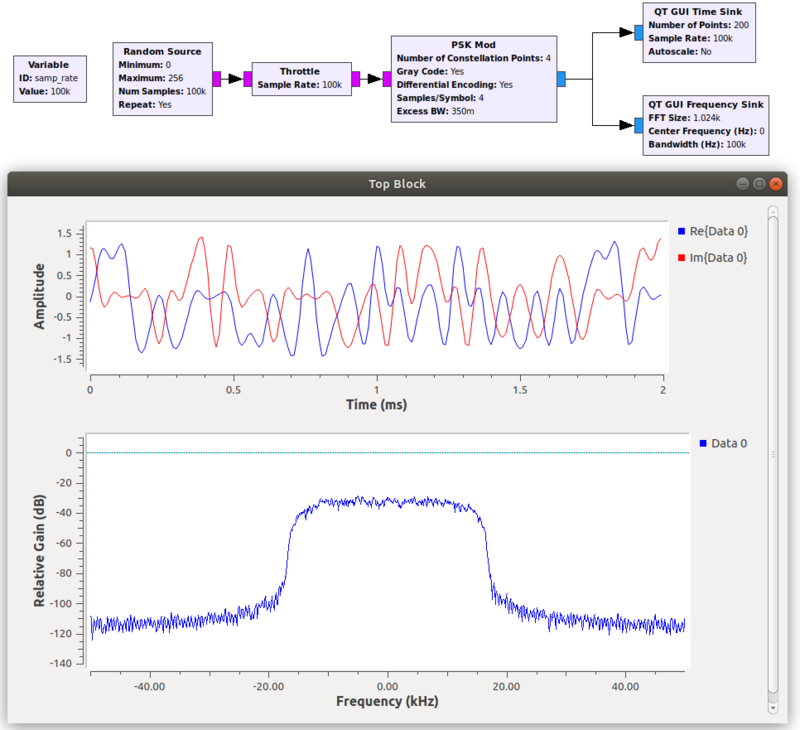Random Source: Difference between revisions
Jump to navigation
Jump to search
No edit summary |
(Add comparison to Random Unifrom Source) |
||
| Line 5: | Line 5: | ||
Supports an output of type int, short, and byte. | Supports an output of type int, short, and byte. | ||
This block differs from [[Random Uniform Source]] in the pseudorandom number generator used. This block uses Numpy to generate random values through the [https://en.wikipedia.org/wiki/Mersenne_Twister MT19937] algorithm which [https://prng.di.unimi.it has been shown] to be require more processing time but be more numerically stable than the [https://xoroshiro.di.unimi.it/xoroshiro128plus.c xoroshiro128+] algorithm used in [[Random Uniform Source]]. | |||
== Parameters == | == Parameters == | ||
Revision as of 21:28, 12 January 2022
Generates a number of samples of random numbers of [min, max) meaning the max value won't be included. Repeat samples if specified. Great for creating bytes of information for a modulator.
Ex: With min=0 and max=2, the sequence 01110101... will be generated.
Supports an output of type int, short, and byte.
This block differs from Random Uniform Source in the pseudorandom number generator used. This block uses Numpy to generate random values through the MT19937 algorithm which has been shown to be require more processing time but be more numerically stable than the xoroshiro128+ algorithm used in Random Uniform Source.
Parameters
(R): Run-time adjustable
- Param 1 (R)
- Description of parameter, provide any tips or recommended values. Note that the name of the parameter above should match the param's label that shows up in grc (e.g. Sample Rate).
- Param 2
- blah blah blah
Example Flowgraph
Source Files
- C++ files
- TODO
- Header files
- TODO
- Public header files
- TODO
- Block definition
- TODO
